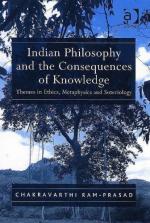|
This section contains 464 words (approx. 2 pages at 300 words per page) |

|
NANJŌ BUNYŪ (1849–1927), also transliterated Nanjio Bunyiu; Japanese Buddhist scholar who first introduced Sanskrit into Japan from Europe and laid the foundation for Western-style Sanskrit and Buddhist studies in Japan. Nanjō was born in Gifu prefecture on May 12, 1849, and was educated in a school run by the Higashi-Honganji. In 1876 he was selected by the abbot Gennyo to study Sanskrit and Sanskrit Buddhist texts in England. F. Max Müller, whom he visited at Oxford in 1879, advised him to study Sanskrit there under A. A. Macdonell, one of Müller's students. Nanjō returned to Japan with an M.A. degree in 1884, and the following year he began to teach Sanskrit at the University of Tokyo.
During his stay in England Nanjō helped Müller to publish Buddhist Sanskrit manuscripts that had been preserved in such Japanese temples as the H...
|
This section contains 464 words (approx. 2 pages at 300 words per page) |

|


